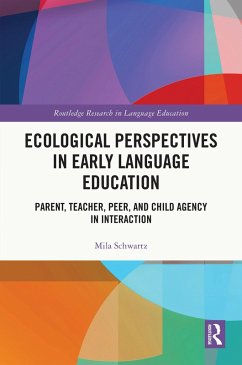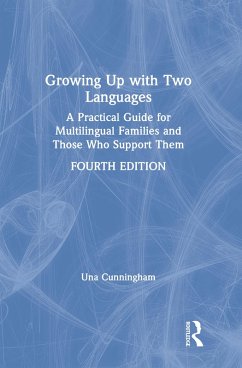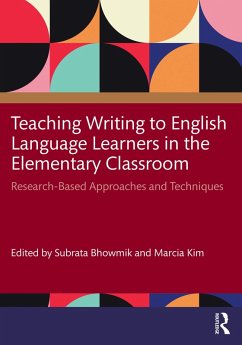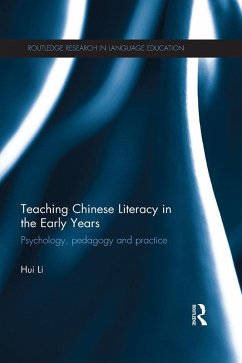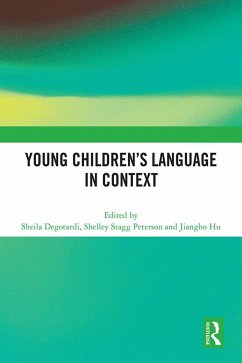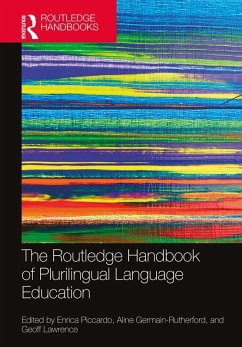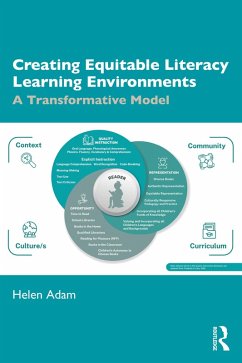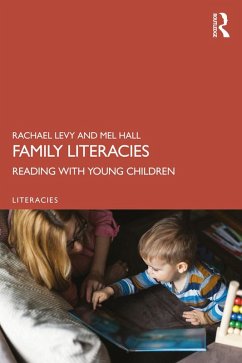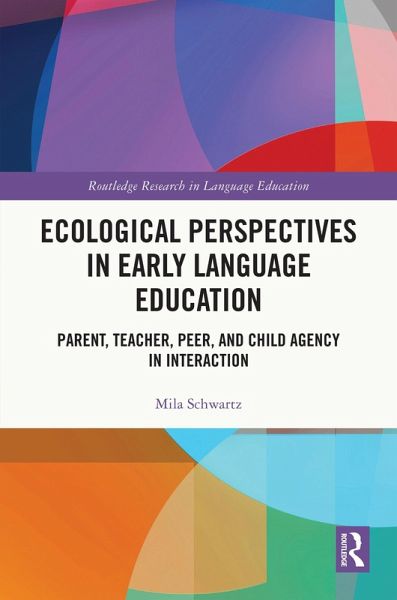
Ecological Perspectives in Early Language Education (eBook, ePUB)
Parent, Teacher, Peer, and Child Agency in Interaction
Versandkostenfrei!
Sofort per Download lieferbar
41,95 €
inkl. MwSt.
Weitere Ausgaben:

PAYBACK Punkte
21 °P sammeln!
This book presents ecological perspectives towards early language education that conceptualise the phenomenon of interactions between child language-based agency, teachers' agency, peers' agency and parents' agency, consequently furthering insights into the lives of young children growing up in multilingual homes.Drawing on rich empirical research evidence, the book explores teachers' and family strategies and practices aimed at enhancing children's interest in home language maintenance and enrichment as well as in the novel language learning. It defines early language education as the educati...
This book presents ecological perspectives towards early language education that conceptualise the phenomenon of interactions between child language-based agency, teachers' agency, peers' agency and parents' agency, consequently furthering insights into the lives of young children growing up in multilingual homes.
Drawing on rich empirical research evidence, the book explores teachers' and family strategies and practices aimed at enhancing children's interest in home language maintenance and enrichment as well as in the novel language learning. It defines early language education as the education of children up to the age of 6 and considers international evidence of children's language from diverse sociolinguistic backgrounds and indigenous, endangered, heritage, regional, minority, majority, and marginalized languages, as well as foreign and second languages in education at home and out-of-home settings. It claims that only through collaboration between teachers, families, peers, and close environment, can the child be engaged in early language learning and fully experience his or her potential to act as agent in a novel language learning.
The book will be of great interest to researchers, academics, and postgraduate students in the fields of language education, multilingualism, applied linguistics, and early childhood education. Practitioners in these fields may also find the volume a valuable resource.
Drawing on rich empirical research evidence, the book explores teachers' and family strategies and practices aimed at enhancing children's interest in home language maintenance and enrichment as well as in the novel language learning. It defines early language education as the education of children up to the age of 6 and considers international evidence of children's language from diverse sociolinguistic backgrounds and indigenous, endangered, heritage, regional, minority, majority, and marginalized languages, as well as foreign and second languages in education at home and out-of-home settings. It claims that only through collaboration between teachers, families, peers, and close environment, can the child be engaged in early language learning and fully experience his or her potential to act as agent in a novel language learning.
The book will be of great interest to researchers, academics, and postgraduate students in the fields of language education, multilingualism, applied linguistics, and early childhood education. Practitioners in these fields may also find the volume a valuable resource.
Dieser Download kann aus rechtlichen Gründen nur mit Rechnungsadresse in A, B, BG, CY, CZ, D, DK, EW, E, FIN, F, GR, HR, H, IRL, I, LT, L, LR, M, NL, PL, P, R, S, SLO, SK ausgeliefert werden.




